-
•
•
34 responses
-
•
•
17 responses
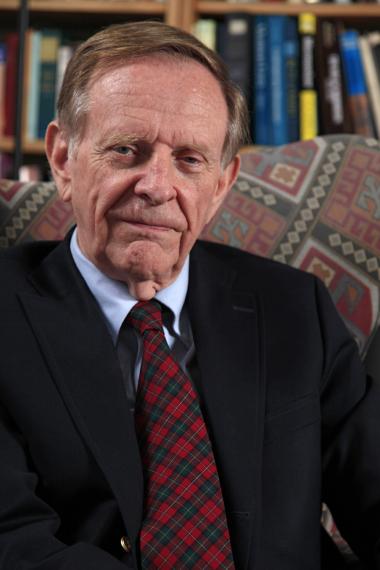
The University of Virginia today announced today a $3 million anonymous donation to establish the Richard Lyman Bushman Chair of Mormon Studies in the University’s Department of Religious Studies. The chair is still subject to approval by the University’s Board of Visitors, after which a search committee will look for candidates for the inaugural appointment, due to begin serving in the 2013-14 school year. Read More
-
•
•
23 responses
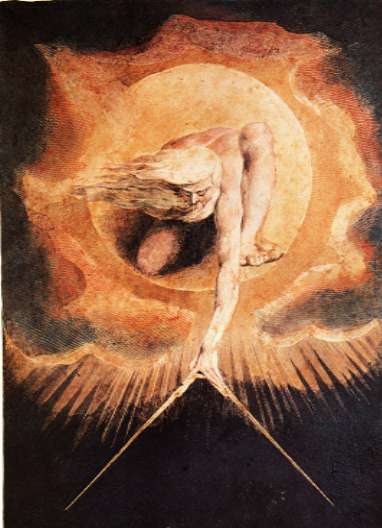
Blake Ostler does a lot of admirable critical work in Of God and Gods (Kofford, 2008), but the book’s main constructive contribution grows out of his decision to make our heady claims about the superlative attributes of God throb with a Hebrew heart. Read More
-
•
•
13 responses
Godfrey is trying to repent but no one will cooperate. Read More
-
•
•
92 responses
If you had any doubt about the impact of the announcement yesterday that missionary service for men and women can begin earlier, just read the reactions in the bloggernacle, on facebook and twitter and even in major newspapers. The largest of the blogs in the bloggernacle have already weighed in on the change… multiple times… in less than 24 hours. I have to wonder; has anyone not put in their two cents? Read More
-
•
•
29 responses
I was surprised and really happy to hear about the big missionary shake-up today. I learned about it first on Facebook, since I wasn’t able to watch Saturday morning’s session, and it was fun to monitor reactions there and around the bloggernacle throughout the day. I pretty much concur with most of the assessments reported in Peggy Fletcher Stack’s great piece in the Tribune: Joanna Brooks and Neylan McBaine both had important comments about the implications of the change for increased gender equality in church governance. I would add one more thought on potential structural implications: a drastically increased cohort… Read More
-
•
•
8 responses
I had planned on giving a brief summary of Priesthood Session tonight; unfortunately, some family/logistical issues kept me from getting to our Church building until well after the session had started, so I’m afraid I missed the first speaker. And I’d planned on bringing my iPad to take notes on, but I accidentally left it at home, and was left with my phone for note-taking. But, in spite of the technical difficulties I faced, it was an enlightening and uplifting session of Conference. Below are my notes, with only the smallest edits for clarity and to fix some autocorrect problems… Read More
-
•
•
53 responses
“I am pleased to announce that, effective immediately, all worthy and able young men who graduated from high school or its equivalent regardless of where they live will have the opportunity of being recommended for missionary service beginning at the age of 18 instead of age 19…. today, I am [also] pleased to announce that able, worthy young women who have the desire to serve may be recommended for missionary service beginning at age 19 instead of age 21.” ~President Thomas S. Monson, General Conference Morning Session October 6, 2012 Discuss. Read More
-
•
•
A few weeks ago a book by the Brazilian language entrepreneur and LDS Church member Carlos “Wizard” Martins, who started the massive Wizard Language Schools chain (similar to Berlitz), reached the bestseller lists in Brazil. I’m fairly sure that the book Desperte o milionário que há em você (Awake the Millionaire Inside of You) is the first by a Brazilian Mormon to reach the bestseller list. I first heard of his book just before it was launched in April, and I didn’t give it much thought then—I’m not really in the book’s the target audience of those seeking a financial… Read More
-
•
•
4 responses
George Eliot sends Silas Marner packing. Early in the novel, Silas is framed for a theft he didn’t commit (probably by his best friend who also has designs on pinching Silas’ fiancé). Silas appeals to God in his defense, but when the church elders cast lots to divine the truth, the lots say he’s guilty. Betrayed by God and men, Silas is left broken-hearted and faithless. Read More
-
•
•
12 responses
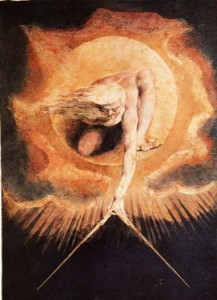
Life has intervened and time is short. Read More
-
•
•
54 responses
As Sarah noted, Saturday and Sunday bring us our Fall semiannual General Conference. As part of our twice-yearly ritual, we’ll hear the Mormon Tabernacle Choir up to three times: one session of Conference Saturday, one session Sunday, and the Music and the Spoken Word broadcast before the first Sunday session. Read More
-
•
•
16 responses
The recent hubbub on BYU’s campus about the selling of caffeinated drinks misses the mark. Sure, there is some demand for caffeine; this is a college campus. It’s not about the flavor. It’s about sleeping too little and needing a boost to remain conscious through early morning or afternoon classes. (Is there any class harder to stay awake through than the one after lunch when they turn down the lights and start showing slides?) Or it’s about living up to your personal standards, which may or may not align with those of other Honor Code compliant students, faculty, and staff.… Read More
-
•
•
10 responses

Sometimes I am a little envious of my friends whose religions involve a year full of meaningful religious holidays that strengthen and define them both culturally and spiritually. Ramadan, for instance, is a sort of month-long holiday for Muslims, complete with special foods and lots of family time. When we lived in Tunisia, I was amazed at the community cohesiveness produced by a holiday that disrupted people’s lives so much for so long. Not much work of any kind was accomplished during the month of Ramadan, but family ties were strengthened, religious convictions deepened, and there was a palpable feeling that everyone… Read More
-
•
•
Gospel Doctrine lesson 40 for the Book of Mormon talks about a subject that isn’t explored as often in Mormonism today: The Gathering. In Joseph Smith’s day it not only mean the gathering, literal and spiritual, of the House of Israel, but it also meant the gathering of Mormon converts to the ‘center place’ of the Church. While we don’t call for the gathering of Mormons to a single place today, the concept is still important when we examine the role of the House of Israel and the times preceding the millennium. The scriptures, including the Book of Mormon in… Read More
-
•
•
51 responses
Several things I thought were interesting, with no unifying theme: Read More
-
•
•
15 responses
Simon Critchley had a charmingly effusive piece about Mormonism on the NYT Opinionator blog a few days back, “Why I Love Mormonism.” His effusions are not always flattering, or accurate, but he gets some important things right about Mormonism. He sees that much of the appeal of Mormonism is that it is a Romantic faith. That is to say: Mormonism is a reformulation of Christianity that leaves behind many of the more unpalatable features of traditional Christianity, as it has come down to us, and responds to many of the moral and spiritual aspirations of the Romantic movement—aspirations that many… Read More
-
•
•
10 responses
Feel like you’re treading water financially? I don’t suppose it will help to know that the wealth of the richest Mormons is also not growing? Perhaps not, but my analysis shows this to be the case. To be honest it’s hard to even think that they are put out! Read More
-
•
•
30 responses
I’ve been reading news stories about people dealing with addiction and depression, people who have committed secret transgressions that finally broke out of their control and caused public ruin and shame for the sufferers and their families. There is so much pain and heartbreak, both for those innocents who must bear the consequences and for the troubled secret-keeper. Which is worse? To learn that the one you love has kept their struggle and pain secret from you, or to be the one striving, but failing, to make it right so you don’t hurt those you love? One of the most… Read More
-
•
•
46 responses
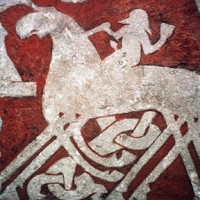
At a multi-stake conference in Berlin in 2010, Area President Erich W. Kopischke quoted Joseph Smith as having declared that “England, Germany, Norway, Denmark, Switzerland, Holland and Belgium have a considerable amount of the blood of Israel among the people which must be gathered out.” Read More
-
•
•
4 responses
In the middle of his visit to the Nephites, Christ leaves the people for the night and then returns the following day (as recounted in 3 Nephi 17-19). Before he leaves, and then again after he returns the next day, Christ teaches the Nephites about prayer, and provides them with examples of prayers—one of which they were unable to even record. These prayers call to mind the model prayer that Jesus provided in the New Testament, the Lord’s Prayer, itself used as an oft-repeated prayer throughout Christendom and the inspiration for many pieces of poetry, including the following by W.… Read More
-
•
•
17 responses
Okay, I took a quick look through the Romneys’ 2011 tax return. There’s plenty that could be said (it is, after all, a 300+ page document), but I only want to highlight a couple things. Note that my explanations are based on reading his returns; to the extent I ascribe motive to the Romneys, it’s not because I know their hearts, but because that’s what the tax returns look like. Read More
-
•
•
3 responses
-
•
•
137 responses
I think that women should receive the priesthood. I don’t find the reasons that have been given as to why the priesthood is limited to males very compelling. I don’t think that motherhood is a good analog to priesthood, or rather I think that motherhood is a kind of priesthood (an exercise of godly power by human beings) but its analog is fatherhood, not the Melchizedek priesthood. I think that the feminization of religion is an important issue, one that feminist critics dismiss rather too breezily. I suspect that the all-male priesthood probably mitigates this problem somewhat in Mormonism, but I suspect that we could come up with other… Read More
-
•
•
65 responses
Is anybody else excited? Read More
-
•
•
17 responses
Times & Seasons used to post, from time to time, something “From the archives”. I revisited a post I published eight years ago, updated a few items, and thought it would still be worthwhile to read. My question to you: what are your memories of the “Primitive church”, if you ever had the privilege of experiencing it? Read More
-
•
•
60 responses
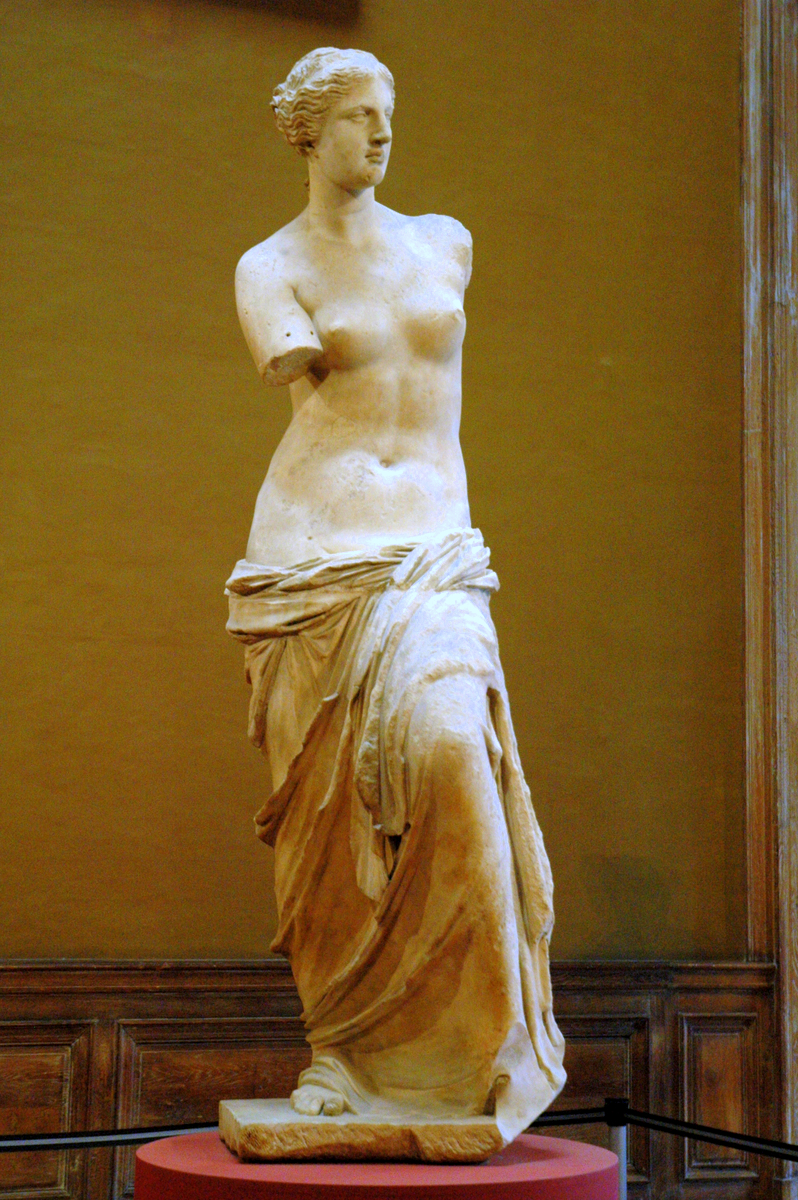
The same drive which called art into being as a completion and consummation of existence, and as a guarantee of further existence, gave rise also to that Olympian realm which acted as a transfiguring mirror to the Hellenic “will.” The gods justified human life by living it themselves—the only satisfactory theodicy ever invented. – Friedrich Nietzsche During part 1 I described for you my personal awakening to the existence of Heavenly Mother. In this post, I’ll explore some of the implications that discovery had for the way I view God, religion, and myself. (Also see parts 3 and 4)… Read More
-
•
•
Following the destruction that accompanied Christ’s crucifixion, the Nephites and Lamanites didn’t see relief, or light, until his resurrection and visit to the Americas. This story, found in 3 Nephi 11, is the culmination of the Book of Mormon narrative, the central meaning of the book. His arrival is also the central point of Parley P. Pratt’s poem Christ’s Ministry to the Nephites. Included in his book of poetry (arguably the first Mormon book of poetry aside from Emma Smith’s Hymnal), this poem is also among the first published poems to reference the Book of Mormon, as well as the… Read More
-
•
•
3 responses
-
•
•
This coming Thursday through Saturday at Utah State University, The Society for Mormon Philosophy and Theology will be holding its 2012 conference, on the theme, “Theology of the Book of Mormon.” There will be over 30 paper and panel presentations, including: “The Promise of Book of Mormon Theology” —Grant Hardy, Professor of History and Religious Studies, University of North Carolina at Asheville “Gratia Plena: A Catholic View of Grace in the Book of Mormon” —Peter Huff, Besl Family Chair in Ethics, Religion and Society, Xavier University “Questions at the Veil” —Philip Barlow, Leonard J. Arrington Chair in Mormon History and… Read More
